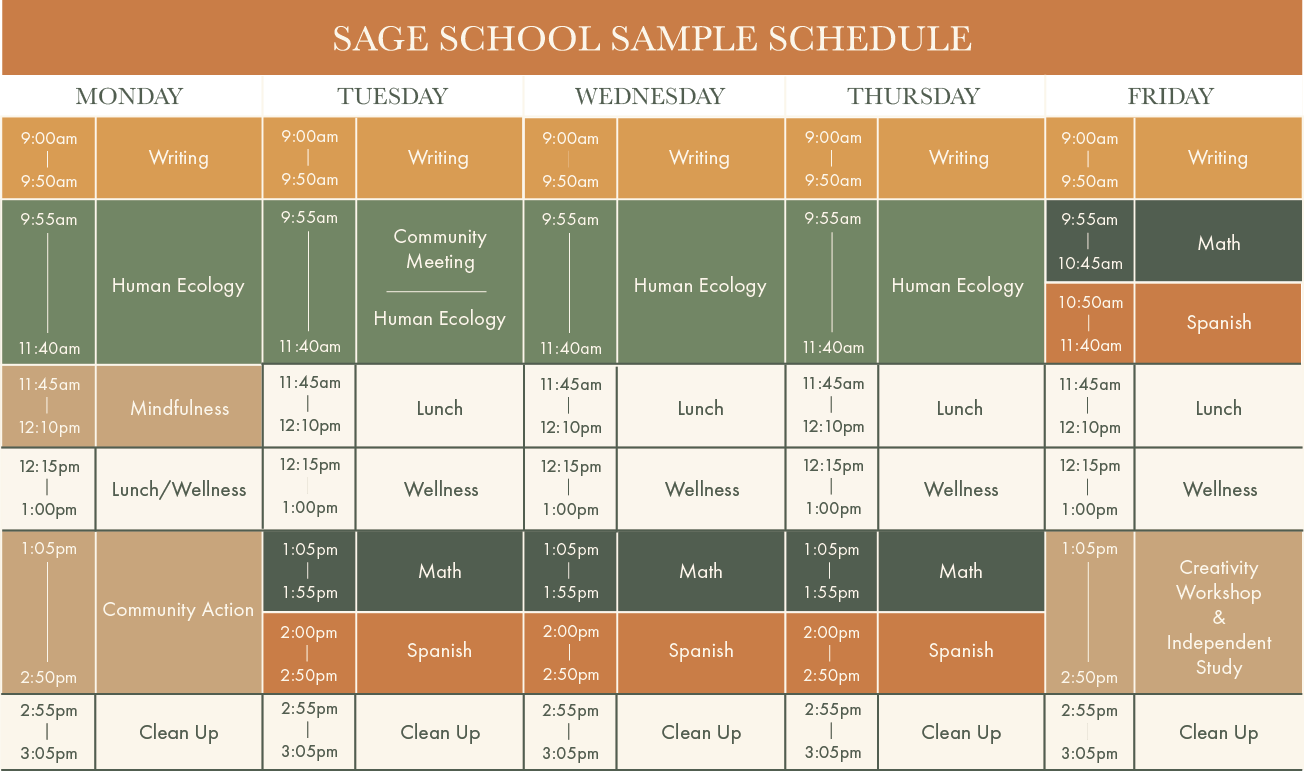The Ravens (10th and 11th)
At The Sage School, we call the 10-11 the Ravens or the Local Apprentices. At this later stage of adolescence, the Ravens or Local Apprentices are growing into their abilities. These students suddenly take on much more responsibility in their lives – they become legal drivers, they hold jobs, they might play a sport and have to perform in front of a large crowd every weekend. 10-11 students become active members of adult society in many different ways during this age of adolescence. In their day-to-day, the Ravens may vacillate between being incredibly mature and poised to being irrational and childish. They sometimes struggle to reconcile a growing self-awareness, competence, and desire for independence with nostalgia for childhood.
During this time, students are continuing to learn how to balance the increasing pressures, demands, and expectations of the impending adult world. To honor their advancing skills, the academic work they complete is authentically beneficial to the community (e.g. educational podcasts aired on the radio, informative debates open to the public, a farm-to-table event that raises funds for a local non-profit). We push these students to employ systems-thinking principles to help them understand how their daily choices impact their natural, social, and built environment.
The Ravens spend one year studying the American System and another studying our Modern Systems through learning about food and agriculture. These themes help students realize that they are already making independent decisions, and that those decisions shape the world in which they live. The curriculum helps cultivate critical analysis skills during this stage of adolescence. It requires students to ask questions. The combination of childish innocence and adult intellect makes this stage of adolescence truly unique.
Daily Schedule Sample

Links
Field Study Overview
Each year, students spend between 20 and 25 days “In the Field” in what we call Field Study. These experiences serve many roles: to ground the year academically, to immerse the students in special areas of focus, and to build relationships with teachers, fellow students, and experts in the field.
Field Study enables a deeper understanding of the overarching curriculum through real, first-hand encounters with the natural, social, and built environments in the Intermountain West, where students can be a part of their curriculum in action.
Field Study is not simply “outdoor education” or “adventure-based education.” Our goal is to explore the people, places, and events that support and create the economic, ecological, and social systems where we live, work, play, and study.
Each Field Study is tailored to the appropriate developmental level of each Band. Academic, physical, social, and emotional, Field Study is an anchor to the adolescent journey.
The costs of all field studies are included in tuition.
